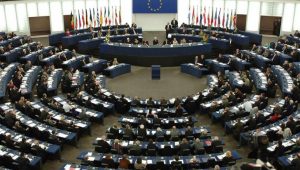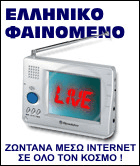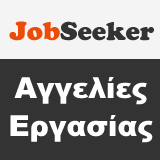 Dialogue of the EU institutions with religious and non-confessional organisations Every year the European institutions hold dialogue sessions with churches, and with non-confessional and philosophical organisations. Based on Article 17 of the Treaty on the Functioning of the European Union (TFEU) the dialogue focuses on issues on the European agenda. From ‘A Soul for Europe’ initiative to the Article 17 dialogue sessions In 1994, Jacques Delors, then European Commission President, identifying a need for European integration to go beyond a purely economic and legal dimension, established the first formal links of the EU institutions with religious communities under the initiative ‘A Soul for Europe’. Structured dialogue with representatives of religions and humanist organisations began, with the aim of contributing to the spiritual and ethical perspectives of the EU, and promoting civil society participation in the integration process. A Reflection Group on the Spiritual and Cultural Dimension of Europe was established in 2003 to reflect upon issues relating to values relevant for European unification. It fed into the work of the Convention which drafted the EU Constitutional Treaty, which in turn set the ground for the eventual adoption and entry into force (in 2009) of the Treaty of Lisbon. With Lisbon, Article 17 TFEU introduced, for the first time, a legal basis for regular, open and transparent dialogue between the EU institutions and churches, religious
Dialogue of the EU institutions with religious and non-confessional organisations Every year the European institutions hold dialogue sessions with churches, and with non-confessional and philosophical organisations. Based on Article 17 of the Treaty on the Functioning of the European Union (TFEU) the dialogue focuses on issues on the European agenda. From ‘A Soul for Europe’ initiative to the Article 17 dialogue sessions In 1994, Jacques Delors, then European Commission President, identifying a need for European integration to go beyond a purely economic and legal dimension, established the first formal links of the EU institutions with religious communities under the initiative ‘A Soul for Europe’. Structured dialogue with representatives of religions and humanist organisations began, with the aim of contributing to the spiritual and ethical perspectives of the EU, and promoting civil society participation in the integration process. A Reflection Group on the Spiritual and Cultural Dimension of Europe was established in 2003 to reflect upon issues relating to values relevant for European unification. It fed into the work of the Convention which drafted the EU Constitutional Treaty, which in turn set the ground for the eventual adoption and entry into force (in 2009) of the Treaty of Lisbon. With Lisbon, Article 17 TFEU introduced, for the first time, a legal basis for regular, open and transparent dialogue between the EU institutions and churches, religious
associations, and philosophical and non- confessional organisations. Article 17 also states that the EU shall respect the status of churches, religious organisations, and philosophical and non-confessional organisations, under national law in the Member States. Dialogue partners The EU institutions organise Article 17 TFEU dialogue sessions with representatives of religious organisations, notably COMECE (the EU Catholic bishops’ conference), the Council of European Churches (CEC – including Protestant, Anglican, Orthodox and Old Catholic churches), Muslim communities, the European Jewish Congress and also Hindu, Sikh and Mormon associations. Philosophical and non-confessional organisations participating in the dialogue include Humanist organisations based on the Belgian model, which insist on the secular neutrality of the public sphere, Freemasons, and free thought, ethical or adogmatic organisations. EU guidelines: freedom of religion, freedom from religion In 2013 the Commission published dialogue implementation guidelines stipulating that dialogue topics are to be related to the EU agenda and agreed on by both parties, that participating organisations must be recognised or registered at national level and adhere to European values. Participating churches or associations are also encouraged to register with the European Transparency Register. That same year, the Council adopted guidelines on the promotion and protection of freedom of religion or belief in EU external relations. The implementation of Article 17 TFEU in the European Parliament (EP) is under the responsibility of one of its Vice- Presidents, currently Mairead McGuinness (EPP, Ireland). During the current parliamentary term, Article 17 dialogue sessions have focused on religious radicalism and fundamentalism (in March 2015), on how education contributes to tackling radicalisation (November 2015), on the role of women in countering radicalisation (April 2016) and on the future of the Jewish communities in Europe (September 2016). The EP Intergroup on Freedom of Religion or Belief and Religious Tolerance, set up in 2014, aims at ensuring that the EU promotes and defends these freedoms in its external relations. It publishes yearly reports on the freedom of religion or belief all over the world, highlighting discrimination against religious minorities, among others against Jews, Christians and atheists.









